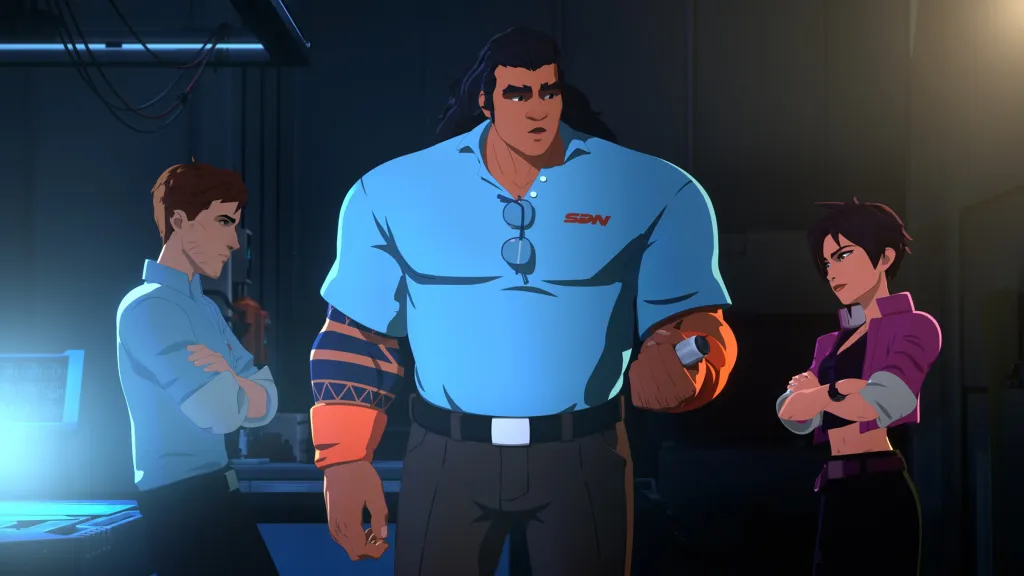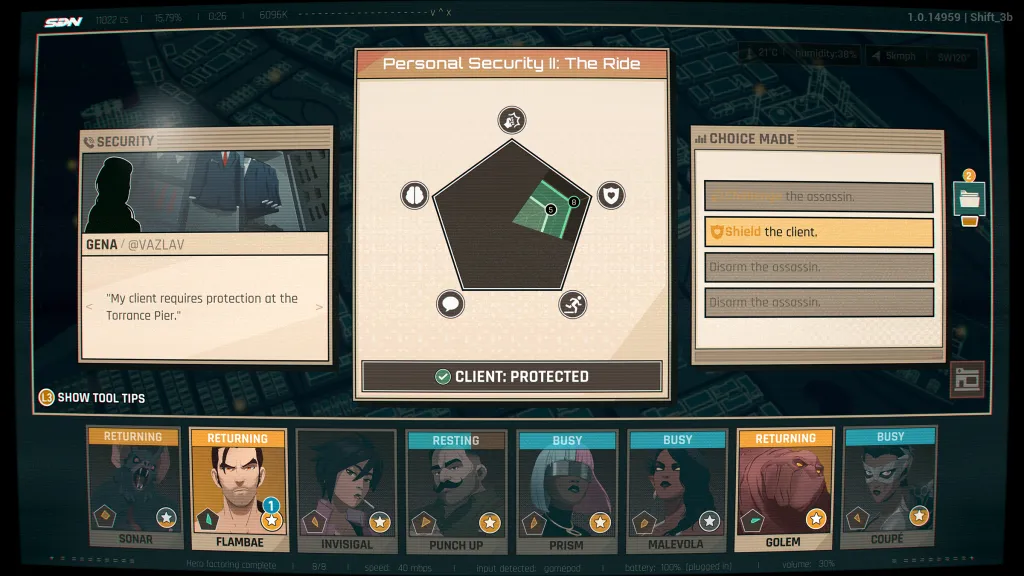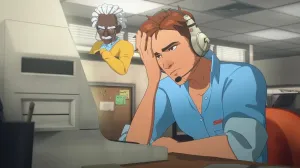Dispatch had one of the best introductory chapters in the narrative adventure genre. The vivid art style and clean animation made for a great first impression, but those more surface-level elements were supplemented by a hilarious story that had a human core and hinted at a broader threat. It’s a high bar that Dispatch Episodes 3 and 4 don’t quite live up to, but there’s still more than enough going on to keep the energy from those debut episodes flowing.
Videos by ComicBook.com
Episodes 3 and 4 do have an overall lower level of energy, though. Whereas the first two episodes of Dispatch had plenty of action and a healthy dose of cutscene-heavy setup, Episodes 3 and 4 have fewer fights — as indicated by the absence of quick time events — and significantly more dispatch sessions. Shifting priorities isn’t necessarily a bad thing, but it does affect the pacing and how much story is able to be told.
Rating: 4/5
| Pros | Cons |
|---|---|
| Same beautiful animation and art style | Not quite as funny as the first two episodes |
| Focuses more on intimate character development | The broader story has seemingly taken a bit of a backseat |
Dispatch Episodes 3 and 4 Focuses on the Characters

The relative lack of fights means there’s less visual candy to gawk at, as Dispatch’s vibrant art, cinematic framing, and detailed animation remain a stunning spectacle that’s, as opposed to many similar games, on par with other contemporary animated TV shows. Slowing down might be a death sentence for other titles like this and more so for a game about superheroes, but Dispatch uses this time to focus more on its characters instead.
Episodes 3 and 4 hone into the inner workings of protagonist Robert Robertson, the sassy ex-villain Invisigal, and the Supergirl-esque SDN branch leader Blonde Blazer. Players get to choose a bit of which woman gets the most attention, but, regardless, Dispatch delves into Inivisgal’s journey in the restorative Phoenix Program and Robert’s early steps to getting back in the Mecha Man suit.
While discussed in prior episodes, Dispatch is clearly shaping up to be a story about finding one’s place after enduring hardship and these two embody that theme from different angles. With that overall theme, it makes sense to spend a couple episodes delving more deeply into that and push other threads into the background, at least temporarily (hopefully, anyway). Robert’s dry charm and Invisigal’s soft core under her abrasive outer shell make them both worthy characters to zoom into since they are multifaceted and have the most potential for change. So even though Dispatch cleverly has other characters embody this theme (it’s the whole point of the Z-Team, after all), this pair deserves the spotlight here.
This makes Episodes 3 and 4 more skin to setup episodes since most of the events here are setting up for future arcs and revelations. There are glimpses of what’s to come — Mecha Man’s revival, a potential romance, a deservedly aggrieved and freshly laid-off member of the Z-Team — and these two chapters are in service of that over massive spectacles. This becomes even more clear when analyzing the two endings, as they’re not after some bombastic fight teasing some supervillain but come as emotional payoffs that gesture toward character development.
Putting the story regarding the broader, external threat that was previously hinted at on hold and having fewer top-tier jokes (it’s still funnier than most games, but doesn’t match its previous standard) means this batch of episodes is ever-so-slightly disappointing, but it’s hard to fault Dispatch for putting more time into its most important characters. It’s likely and entirely possible this groundwork truly prospers within the context of the full season, but that’s the downside of weekly drops: Setup episodes can’t often reach their full potential without the context of the full season.
Dispatch Episodes 3 and 4 Contain More, Well, Dispatching

Dispatch also doubles down on its dispatch mechanics for Episodes 3 and 4 and takes off the training wheels. Picking who can go where and adapting to their unique abilities still makes for a gameplay system that’s more engaging than a typical adventure game puzzle, but these sections are much more intense than those in the beginning. Mistakes are punished quickly and each crisis requires more critical thinking; it’s almost inevitable half the team will be injured after the first shift or shortly into the second.
It’s discouraging to get repeatedly pummeled and calls into question how much of this system is left up to chance. But it’s hard to gauge what was intentional here because these episodes are about failure and how discordant the team has been, so it would be a devious bit of clever storytelling for AdHoc Studio to ratchet up the challenge to reflect that. While a failed job can sting and cause one of the slightly reformed villains to curse out Robert, the game doesn’t seem to actually punish players for poor judgment. Having the dispatch results affect the story would be an interesting avenue, but making the tone of the narrative reflect the difficulty of the dispatch sections is also fitting. The intention regarding its challenge doesn’t matter in the end if it enhances the vibe and isn’t overtly punitive.
Dispatch’s third and fourth episodes build on what was established in the killer introduction but at a slower pace. This doesn’t mean the new chapters drag on — they’re still thankfully just under an hour and don’t have any visible loading screens — but they’re not as concerned with superhero-sized spectacles and are instead committed to laying the groundwork necessary for character growth. A handful of better jokes and more obvious nods to a season-wide storyline would have been ideal ways to continue its superpowered momentum, but it’s hard to fault Dispatch for making the time to examine the heroes behind the mask, especially when those heroes are already this charming.
A PS5 copy of Dispatch was provided by the publisher for the purpose of this review.









